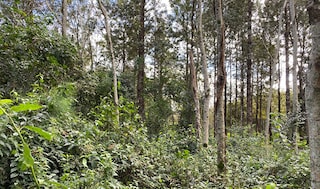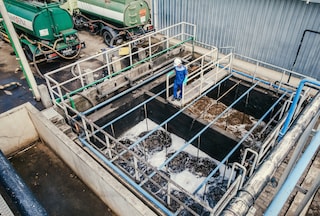
Our 2025 Roadmap goal
see our full 2025 roadmapPRESERVE NATURE
Promote biodiversity, address critical water challenges, ensure no conversion of natural ecosystems, and halt deforestation in both our tobacco and pulp and paper supply chains.
Key performance indicators to track our progress
In 2024, we achieved 88 percent of tobacco purchased at no risk of net deforestation of managed natural forest and no conversion of natural ecosystems, and 100 percent of paper, board, and pulp-based supplies purchased at no risk of gross deforestation of primary and protected forests.* Our water stewardship initiatives have contributed to optimizing a total of 12.3 million cubic meters of water in our tobacco-growing areas since 2019.**
*For definitions, please see PMI’s Zero Deforestation Manifesto
and PMI’s Sustainability KPI Protocol 2024.
**Indicator is based on the World Resources Institute’s volumetric benefit accounting methodology and is verified by an external third party.

See full performance metrics
view dataLearn more about PMI’s Sustainability Index in our Integrated Report 2024. See the full performance metrics and related footnotes here.
The right thing to do
Our value chain involves a significant agricultural supply chain, which can have far-reaching effects on the environment, impacting various natural ecosystems.
Read moreThe business case
Our business activities rely on natural resources and healthy ecosystems. The degradation and loss of natural capital can cause disruptions and increase production costs.
read more
Our progress in 2024
Read more in our Integrated ReportThis online content about our Integrated Report should be read in conjunction with PMI’s Integrated Report 2024. This report includes metrics that are subject to uncertainties due to inherent limitations in the nature and methods for data collection and measurement. The precision of different collection and measurement techniques may also vary. This report includes data or information obtained from external sources or third parties. Unless otherwise indicated, the data contained herein cover our operations worldwide for the full calendar year 2024 or reflect the status as of December 31, 2024. Where not specified, data comes from PMI financials, nonfinancials, or estimates.
Unless explicitly stated, the data, information, and aspirations in this report do not incorporate PMI’s wellness and healthcare business, Aspeya. Regarding the Swedish Match acquisition, completed late 2022, unless otherwise indicated, this report includes information pertaining to its sustainability performance. Please also refer to "This report at a glance" on page 2 of the PMI’s Integrated Report 2024 for more information. Aspirational targets and goals do not constitute financial projections, and achievement of future results is subject to risks, uncertainties and inaccurate assumptions, as outlined in our forward-looking and cautionary statements on page 206. In PMI’s Integrated Report 2024 and in related communications, the terms “materiality,” “material,” and similar terms are defined in the referenced sustainability standards and are not meant to correspond to the concept of materiality under the U.S. securities laws and/or disclosures required by the U.S. Securities and Exchange Commission.








